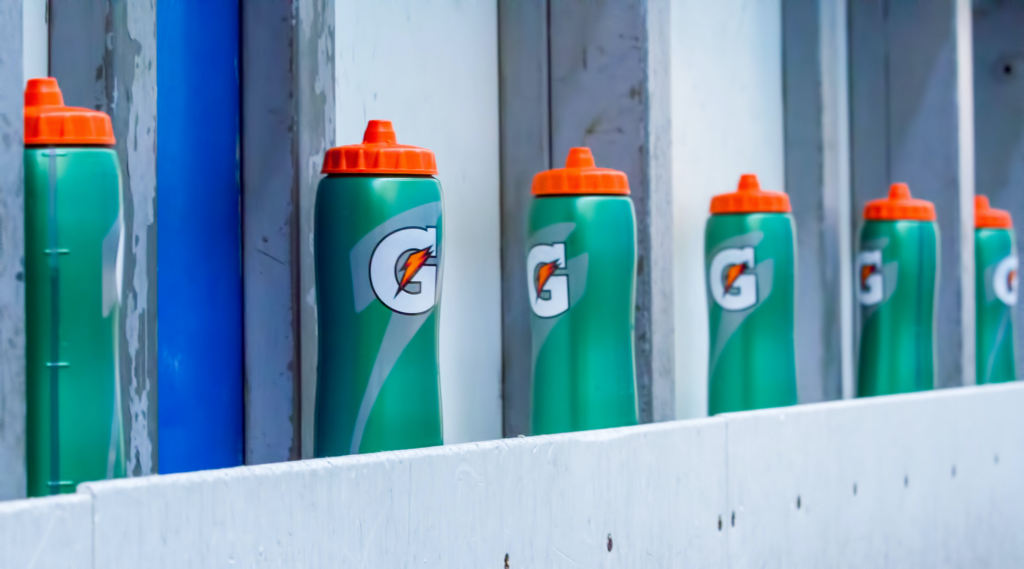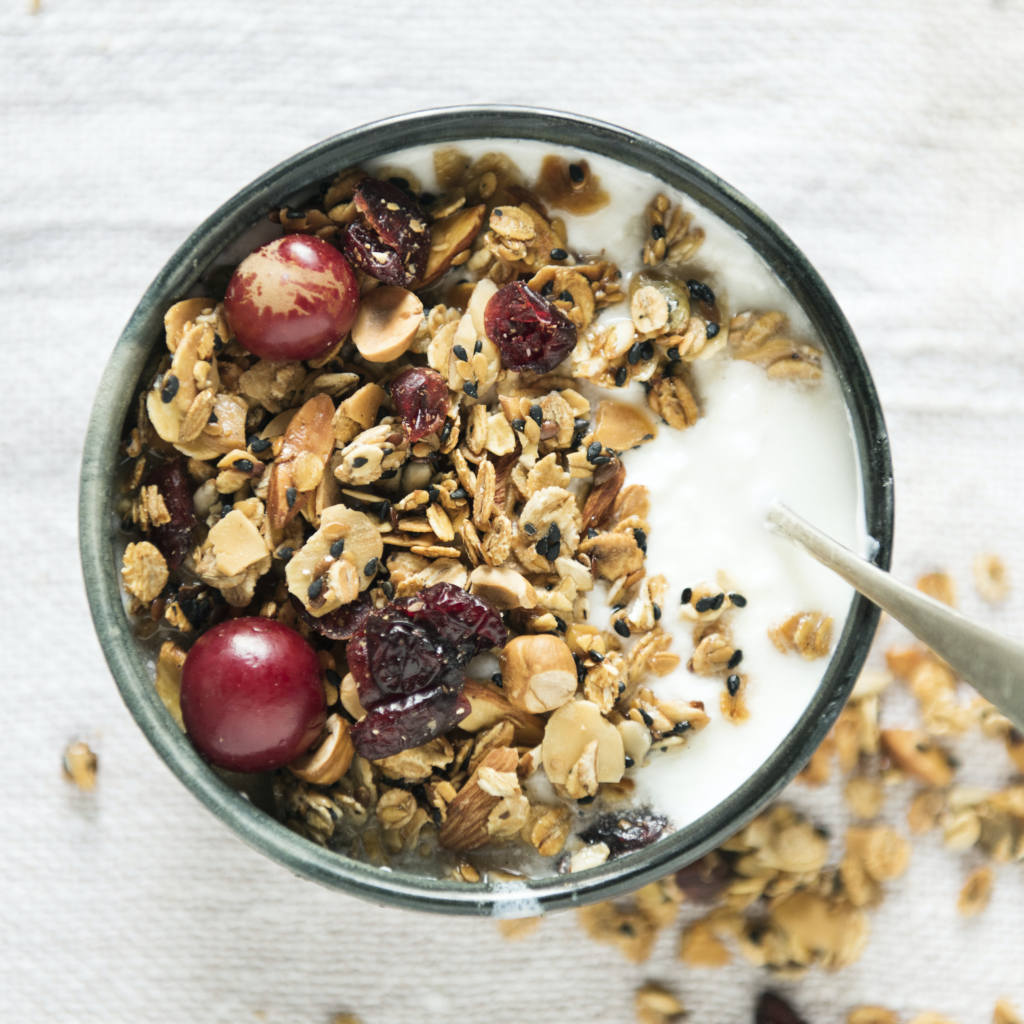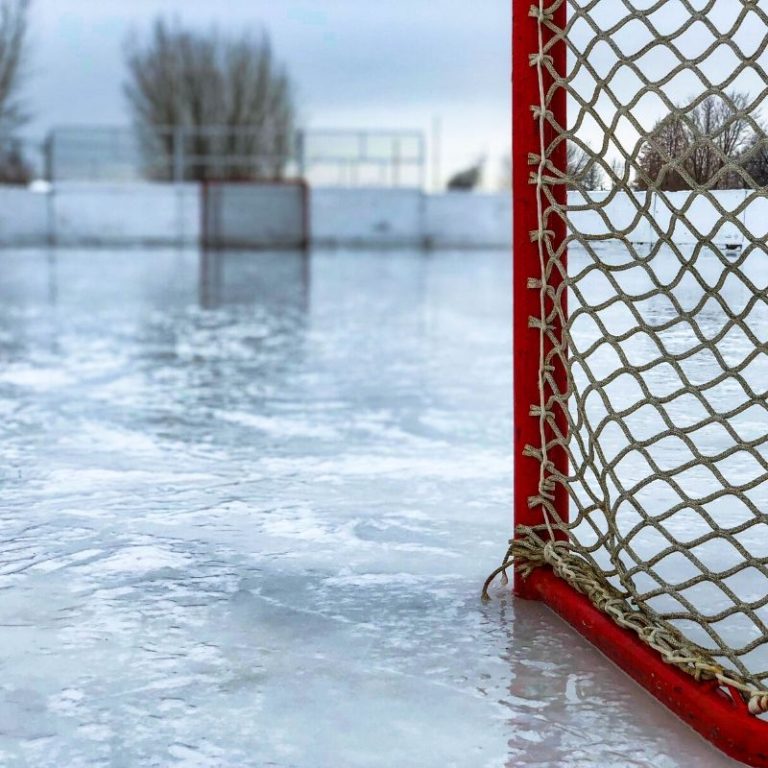We are well into hockey season in Canada, and many hockey families are spending their early mornings, evenings, and weekends, shuttling their future NHLers off to practices, games, and tournaments.
For parents, feeding growing kids can be challenging enough without busy practice and game schedules, and on-ice performance to keep in mind. However, hockey nutrition is key during this busy season as, on top of everything else, immune function can be comprised, illnesses run rampant, and energy output is high.
Meeting the nutrient demands of young and developing athletes can be tough, as they need enough calories and nutrition for growth and development, in addition to what they are expending on the ice. Nutrition messaging can be confusing and conflicting, often leaving parents wondering what is best for their athletes. With a few key nutrition pointers, you’ll be able to keep your kids well-fueled, and ready to play!
Below are some of the most common questions and concerns I get from parents. I’d love to hear if you have other questions or comments on what you’ve been up to with your hockey nutrition!
1. Should my son/daughter be drinking Gatorade (or other sport drinks) during practices and games? Isn’t that stuff full of sugar?!
It’s true that sports drinks (like Gatorade and Powerade) contain sugar. But that’s exactly the point – they play a specific role in sport. Their name says it all – they are designed specifically as a drink for the needs of athletes in sport and play specific roles in performance. They are not meant as a daily beverage for a non-athlete, or even a suitable beverage for all athletes.
Here’s the deal – sugar (also known as glucose) – is the body’s main energy source during exercise. This is why carbs are so important to athletes – without them, athletic performance suffers. We are limited in how much glucose (sugar) we can store in our body, so sports drinks can help fill up the tank with some fast carbs when we need them quickly.
The amount of glucose in sports drinks is about half that found in juice and pop. This amount of sugar has been found to be optimal for digestion and hydration. Too much sugar at once can cause digestive upset and can actually increase the risk of dehydration. This is why drinks such as fruit juice or pop are not recommended right before or during exercise.
Sports drinks also contain electrolytes, such as potassium and sodium, both of which are lost in our sweat. In sports (such as hockey) where athletes sweat a lot, the electrolytes in sports drinks can help with re-hydration, reducing muscle cramping, and can trigger athletes to actually drink more than they normally would as the sodium in sports drinks triggers thirst. All of these can be very beneficial in certain situations. If you are leery of commercial sports drinks, you can easily make your own by combining 1 L water with 1 L orange juice and ¼ tsp salt.
Keep in mind that young athletes (under the age of 12) generally do not need sports drinks and will benefit most from a healthy snack before and after the game or practice and plenty of water for hydration.
These are situations where sports drinks maybe beneficial for athletes:
- If you’re exercising continuously, longer than 60 minutes. If your hockey game or practice is less than 60 minutes long, plain old water will do just fine. If your practices are longer than 60 minutes or if you are playing intensively for at least 15 minutes during a game, consider using a sports drink.
- If you’re playing a high intensity, intermittent sport (such as hockey) and if you’re wearing heavy equipment (such as in hockey). Hockey players sweat a lot. One study showed that the average elite hockey player loses 1.5 L of sweat per hour of play. Obviously this may not be the case with younger and more recreational athletes, but sweat rates can still be quite high. This may result in loss of electrolytes and decreased hydration, both of which can be improved with taking in a sports drink.
- If you haven’t had a chance to grab a healthy carb-based snack within 1-2 hours before the game or practice. Sports drinks can be a fast carb (and fluid source) before activity to give you the carbs you need out on the ice.

Sports drinks are advantageous for some athletes, including hockey players.
2. Are protein shakes a good idea after a game when thinking hockey nutrition?
Both protein AND carbohydrates are important after a hockey game or practice.
In fact, carbohydrate is even more important directly afterwards because there is a short window of time where the enzymes that convert carbohydrate to glycogen (the storage form of carbs in our muscles and liver) are more active. You definitely want to take advantage of this opportunity to refuel.
Most protein shakes provide an excellent source of high quality protein and fluids to rehydrate and rebuild muscle tissue, but they often miss out on carbs. Not to mention, there are plenty of whole foods that will also provide a good hit of protein (along with other nutrients that will promote recovery). Excellent recovery snack options include things like: Greek yogurt, fruit, and granola; a bowl of oatmeal topped with nuts & seeds & milk; a sandwich or wrap with lean meat and veggies; or a homemade trail mix with nuts, seeds, dry cereal, and dried fruit.
If you find protein shakes convenient and enjoy having them after a game or practice, just make sure to include something like a piece of fruit, handful of dried fruit, or even a sandwich or wrap to make sure you are getting some healthy carbs for optimal re-fueling. Also take note, that supplements such as protein powder are not necessarily all made equally and not well-regulated. It is important to choose one that has been third party tested through an organization such as NSF Certified for Sport or Informed Choice (this will be evident on the label).

Don’t forget to incorporate carbohydrates with your recovery snack. Greek yogurt with fruit and/or granola is a great option!
3. What should we be eating when we’re on the road and eating at restaurants during tournaments to keep hockey nutrition top of mind?
Ideally, planning ahead and packing food for a tournament is the best way to go. Just as you would plan and pack clothes and hockey gear, nutrition should be given the same consideration.
Here are some meal and snack ideas that are portable and easy to have on hand when traveling.
Quick & on-the-go breakfast ideas:
- Packet of instant oatmeal (can be made in hotel room with hot water) + banana + (optional if you have fridge) – container of Greek yogurt
- 1 bagel with peanut butter, small carton of flavoured soy milk (doesn’t need to be refrigerated)
- 2 homemade energy bites or homemade muffin + banana
Portable Energizing Snacks:
- Homemade trail mix (eg mixture of plain cereal, peanuts, almonds, walnuts, pumpkin seeds, sunflower seeds, dried fruit)
- Fruit & cut up raw vegetables
- Mini can of flavoured tuna + crackers
- Pita with peanut butter or almond butter or hummus (can buy individual portions)
- Banana + bagel with peanut butter
- Granola bar (check label to make sure it contains more than 5 grams protein) + piece of fruit + raw nuts
The reality however, is that you will likely find yourself eating out if you’re traveling for tournaments and games. Healthier choices can still be found if that’s the case. This is what to look for when it comes to hockey nutrition:

Eating out at weekend tournaments can be tricky for hockey players. Do you know what to look for?
- If eating prior to a game, or if fueling up the night before an early morning game – focus on higher carb choices with a portion of protein, and stay away from high fat foods as they will delay those energy-providing carbs from getting into your system quickly.
- Try keeping your plate balanced with 1/3 of your plate focused on carbohydrate rich foods (such as pasta, rice, bread, or potatoes), 1/3 of your plate as lean protein (such as chicken, fish, turkey, tofu, or eggs), and 1/3 of your plate as vegetables and/or fruit.
- Some examples of healthier options when eating out during tournaments or before games include:
- Bagel + peanut butter + skim milk
- Yogurt and berries parfait
- Poached or scrambled eggs with toast, tomatoes, fruit, skim milk or orange juice
- Oatmeal with fruit, carton of skim milk
- Sandwich or wrap – choose leaner meats like (un-breaded) chicken or turkey, and ask for creamy sauces on the side or skip altogether (eg mayo, ranch, Caesar)
- Pasta with a tomato sauce & side salad (skip the butter-laden garlic bread, and avoid any creamy sauces)
- Chicken & veggie stir fry with rice
- Plain burger, baked potato (skip the sour cream), side salad, carton of skim milk or fruit juice
Keeping energy levels up on and off the ice does take some planning and preparation, but is well worth the effort! Using nutrition as another training tool in your toolbox will help you out-skate your opponents, become stronger, healthier, and recover faster, so that you can play your best game each time you’re on the ice.
If you enjoyed this article, I recommend you check out this article; Learn about cooking should trump hockey practice … even in Canada! before you leave. It might make all the difference to what you are struggling with or the information you are looking for.
Take it one bite at a time,
Cara
References:
Palmer, M.S., Logan, H.M., Spriet, L. L. (2010). On-ice sweat rate, voluntary fluid intake, and sodium balance during practice in male junior ice hockey players drinking water or a carbohydrate-electrolyte solution. Applied Physiology, Nutrition, and Metabolism, 35(3): 328-335.
Burke, L. & Deakin, V. (2007). Clinical Sports Nutrition. Australia: McGraw-Hill.






